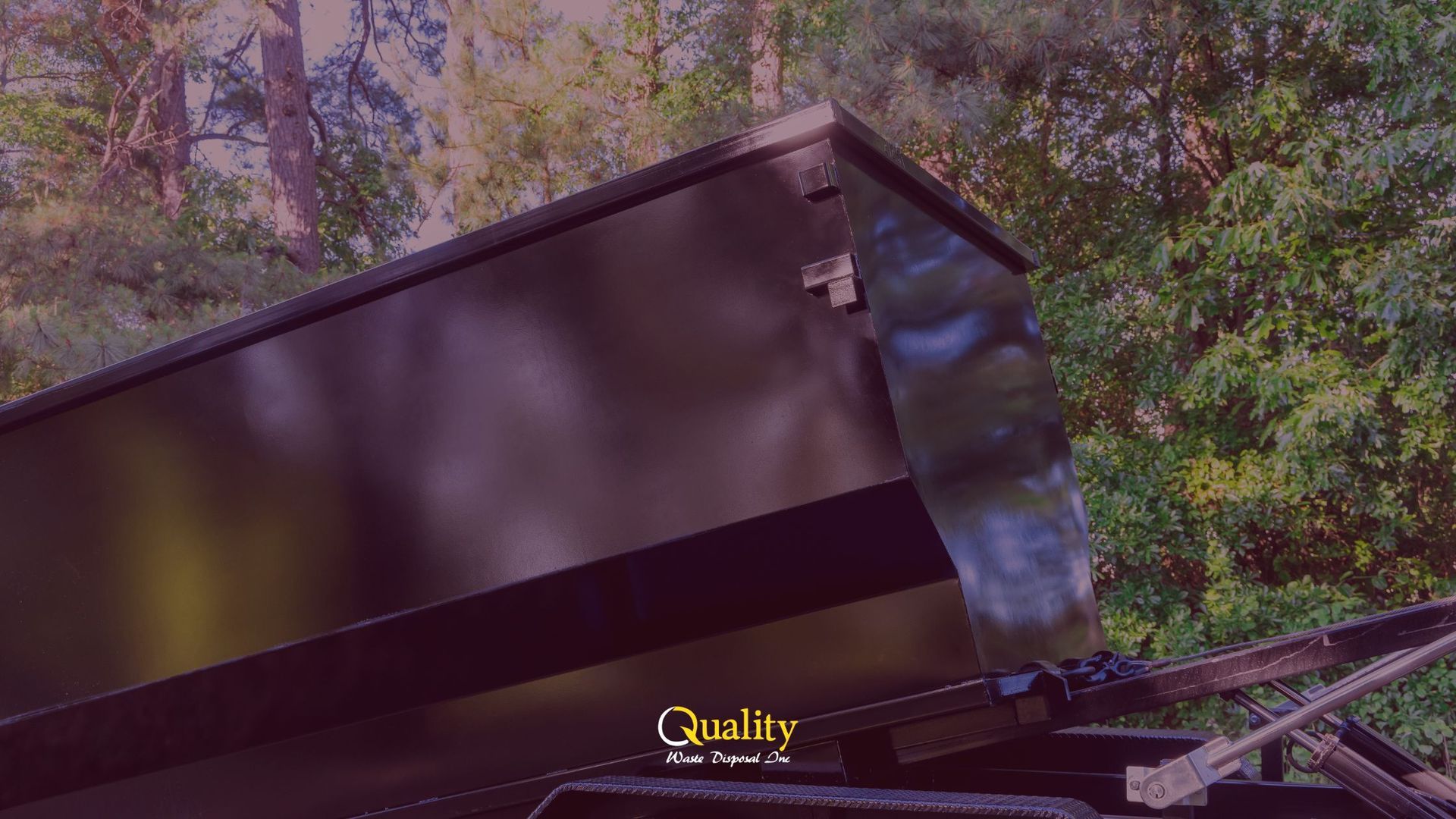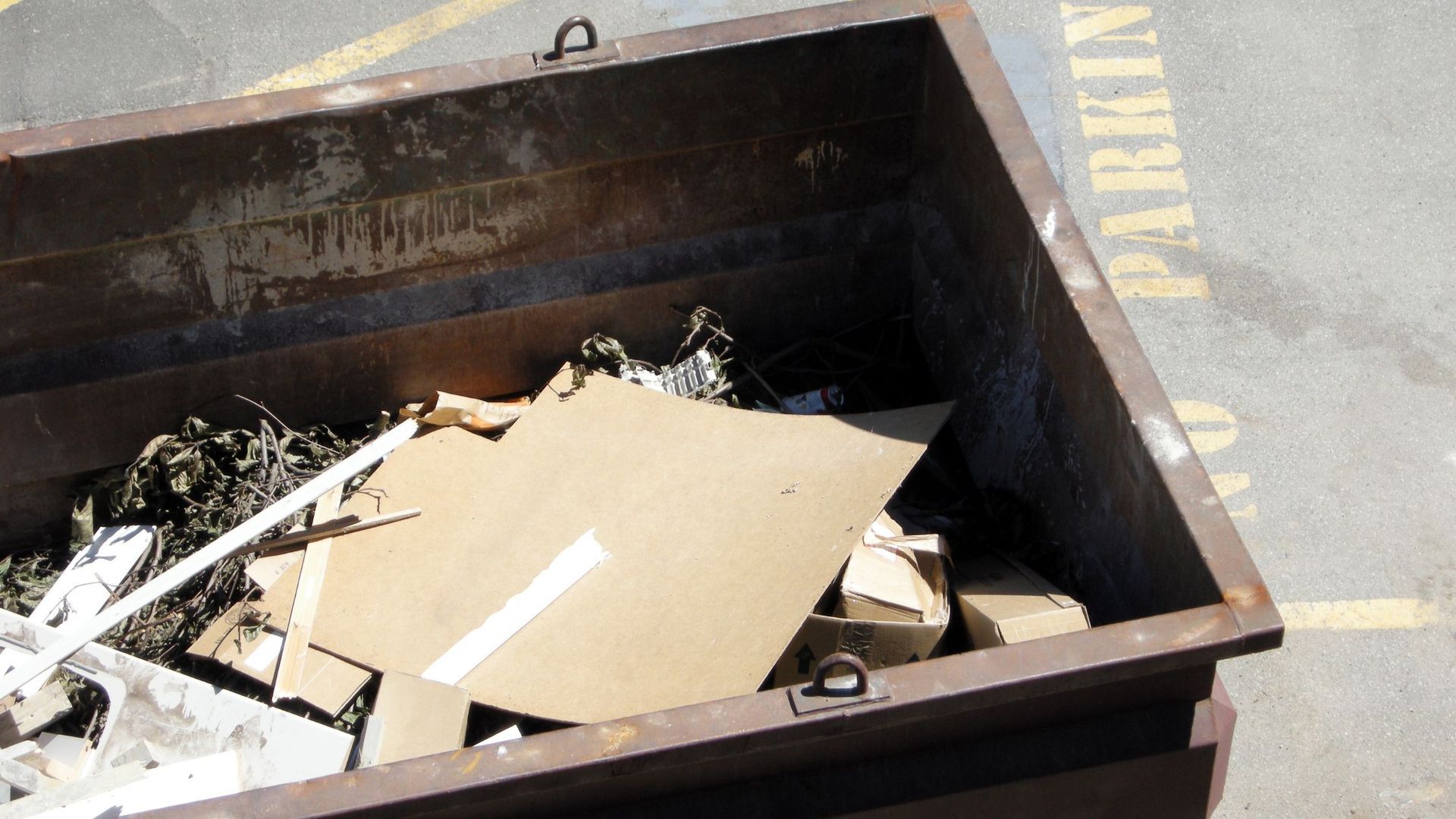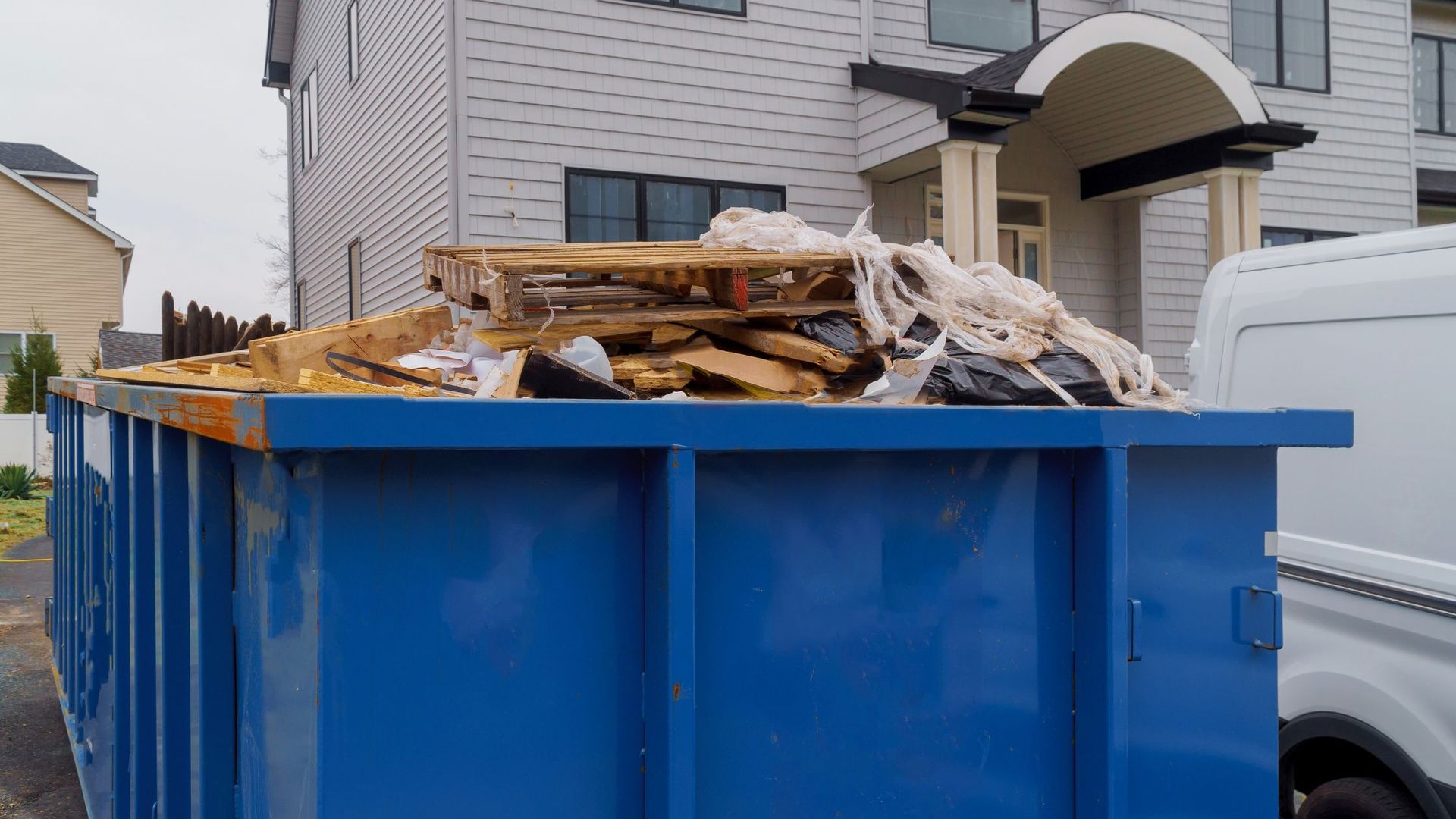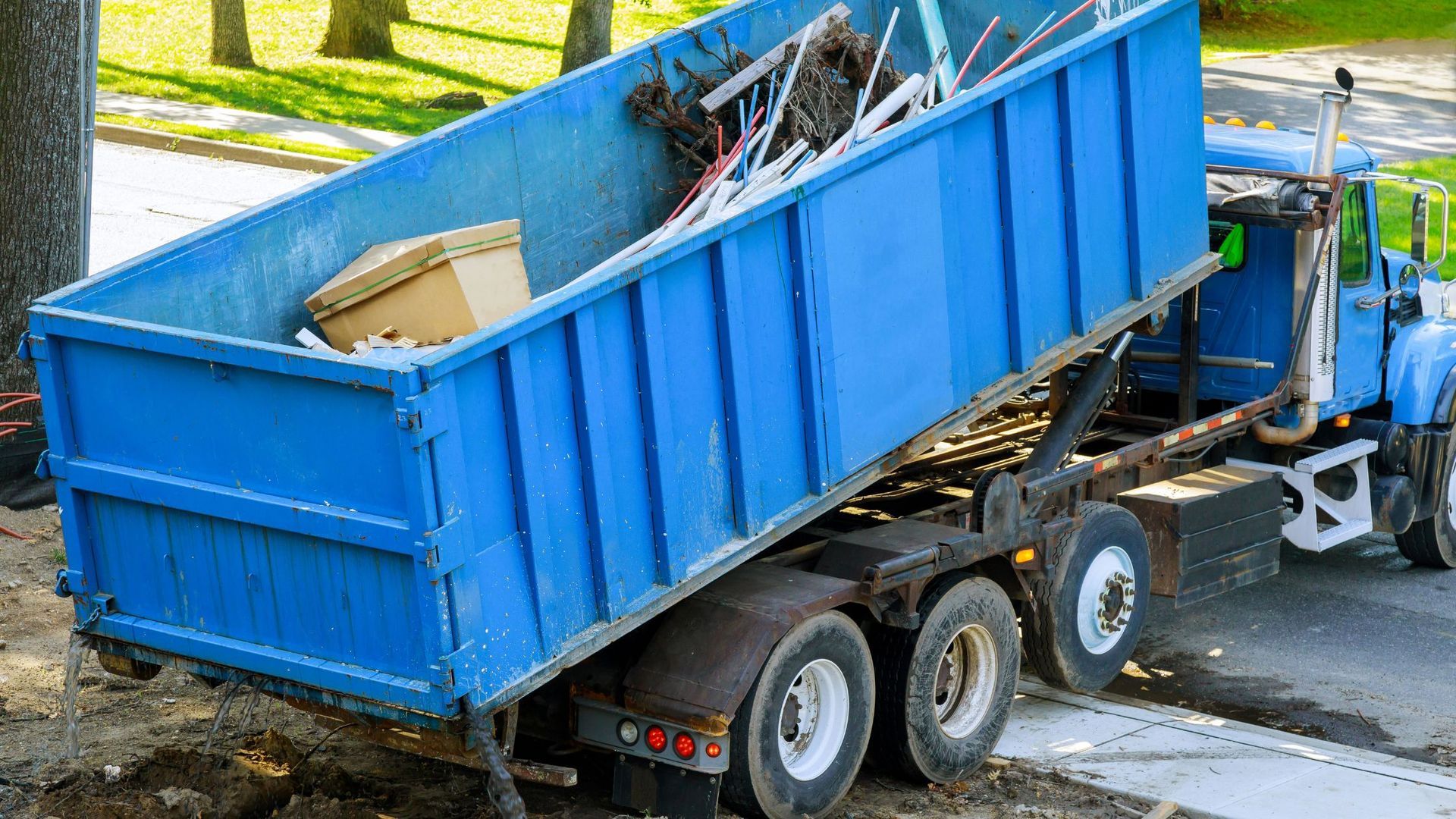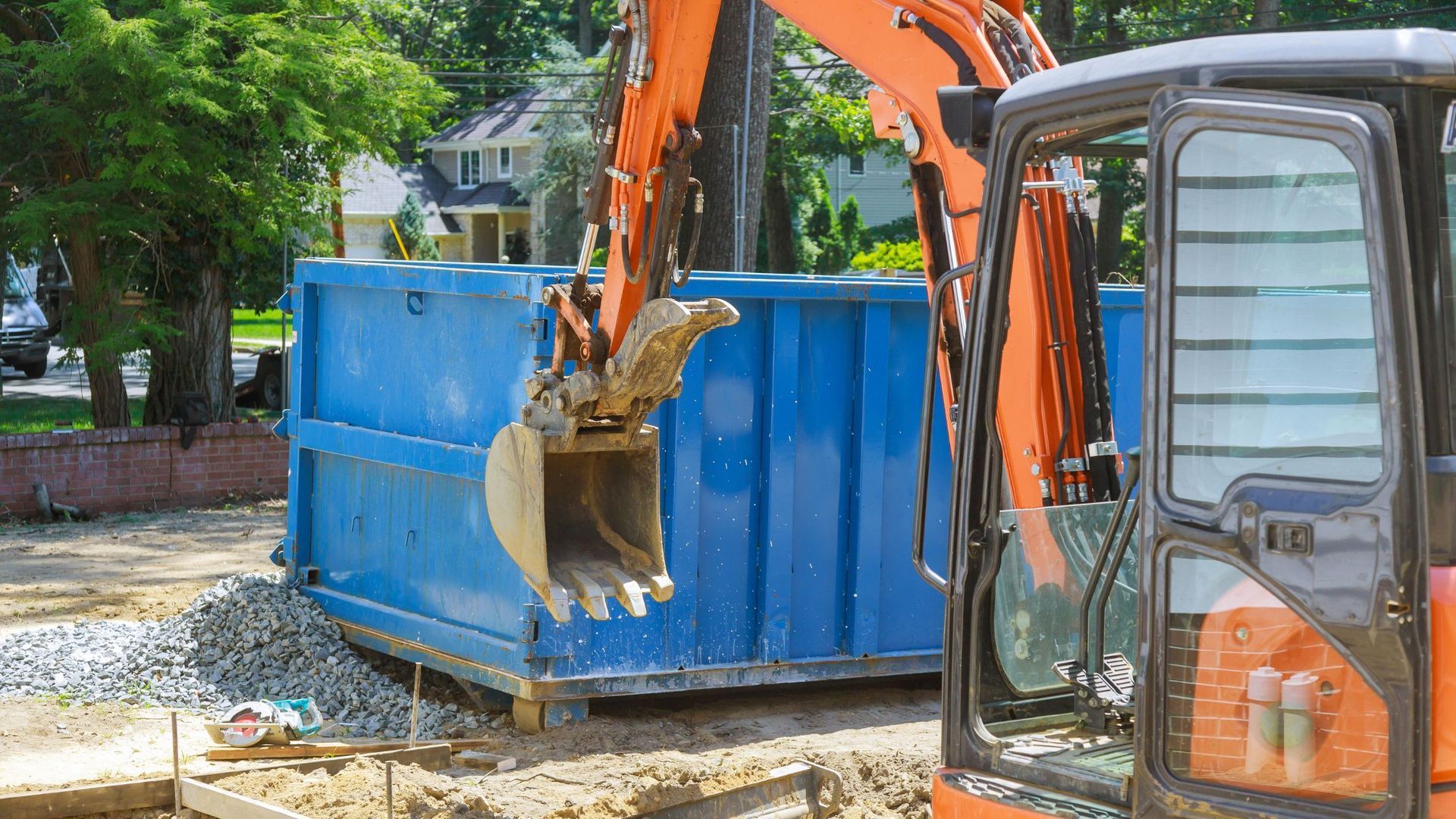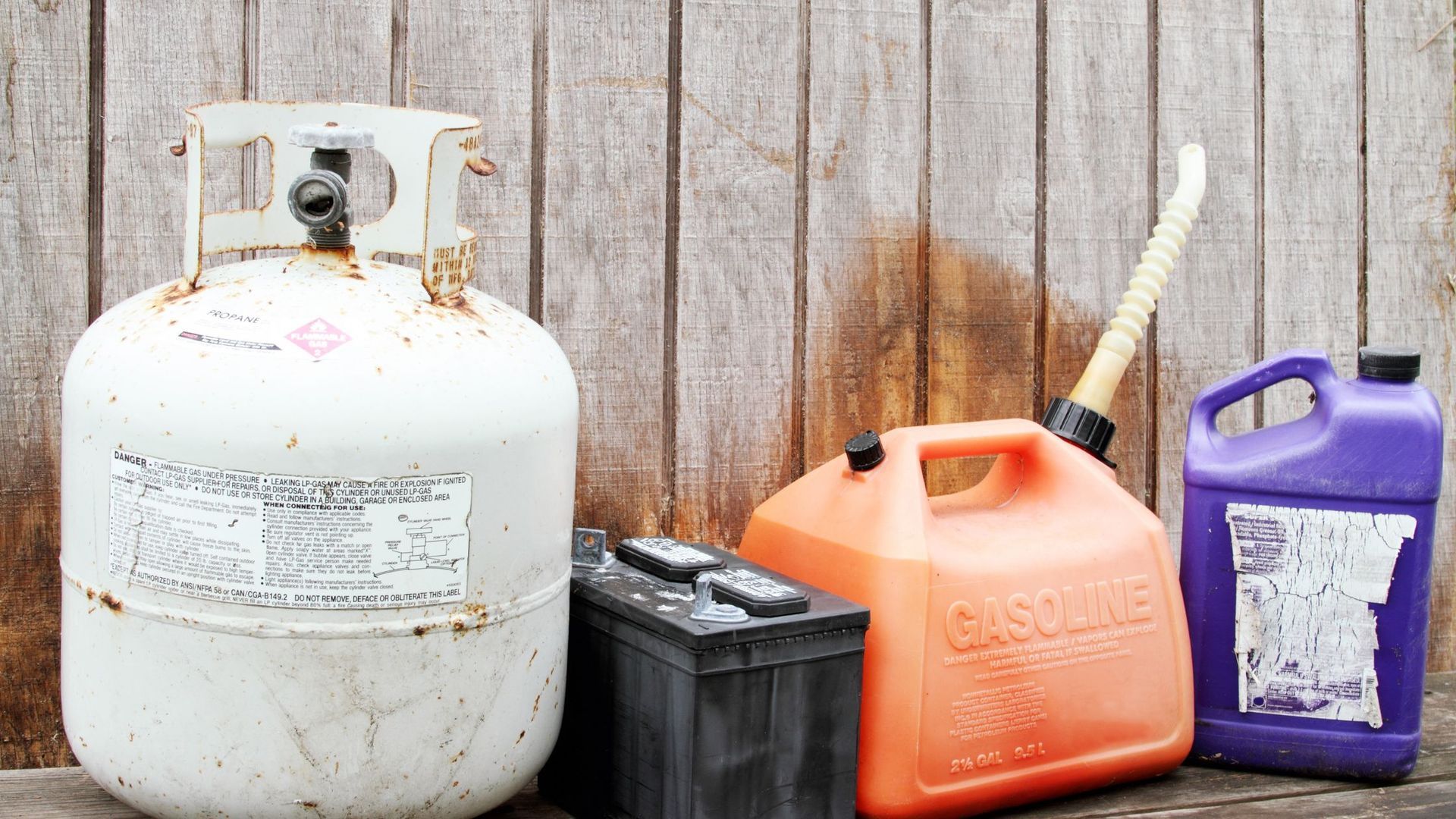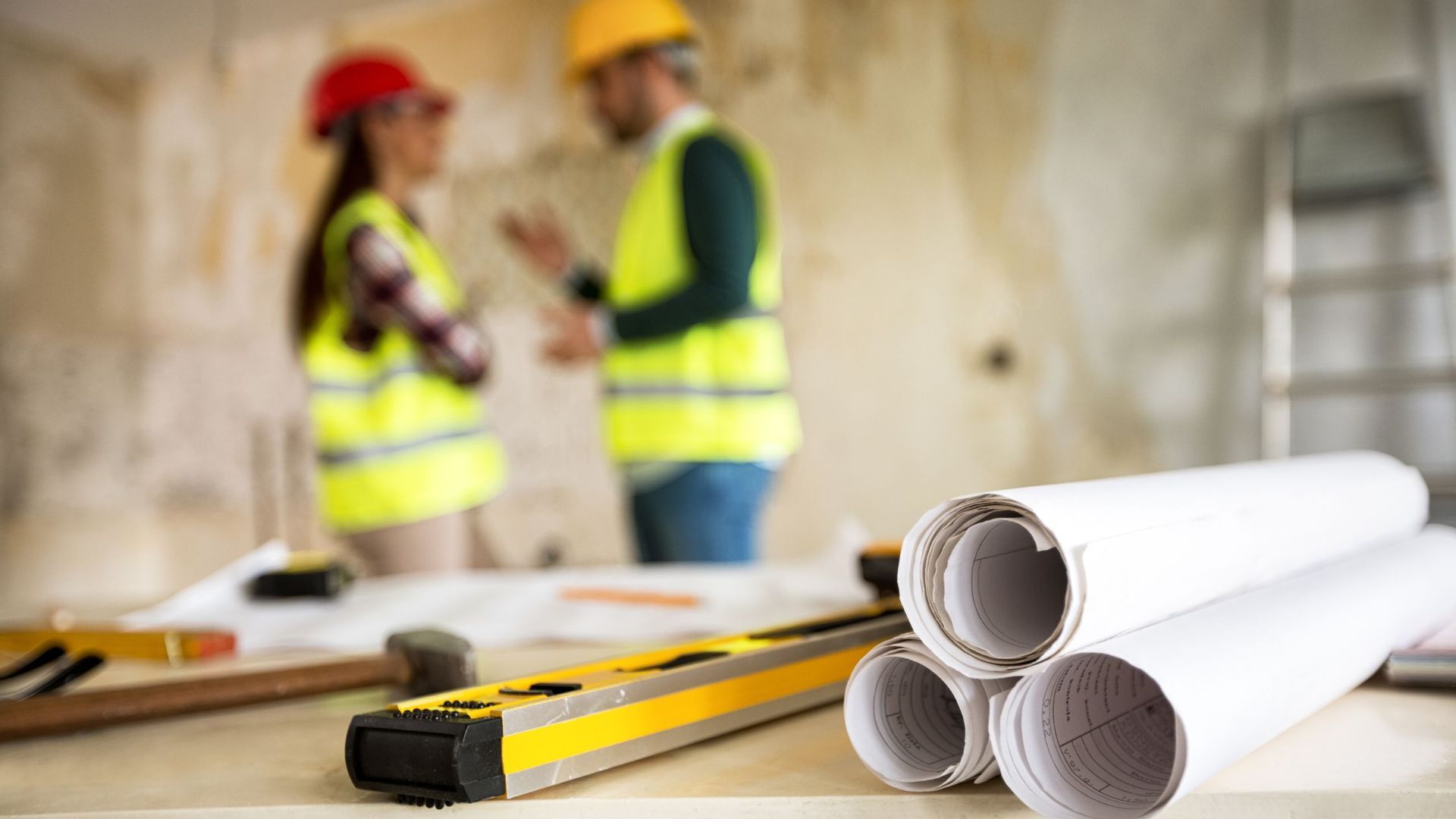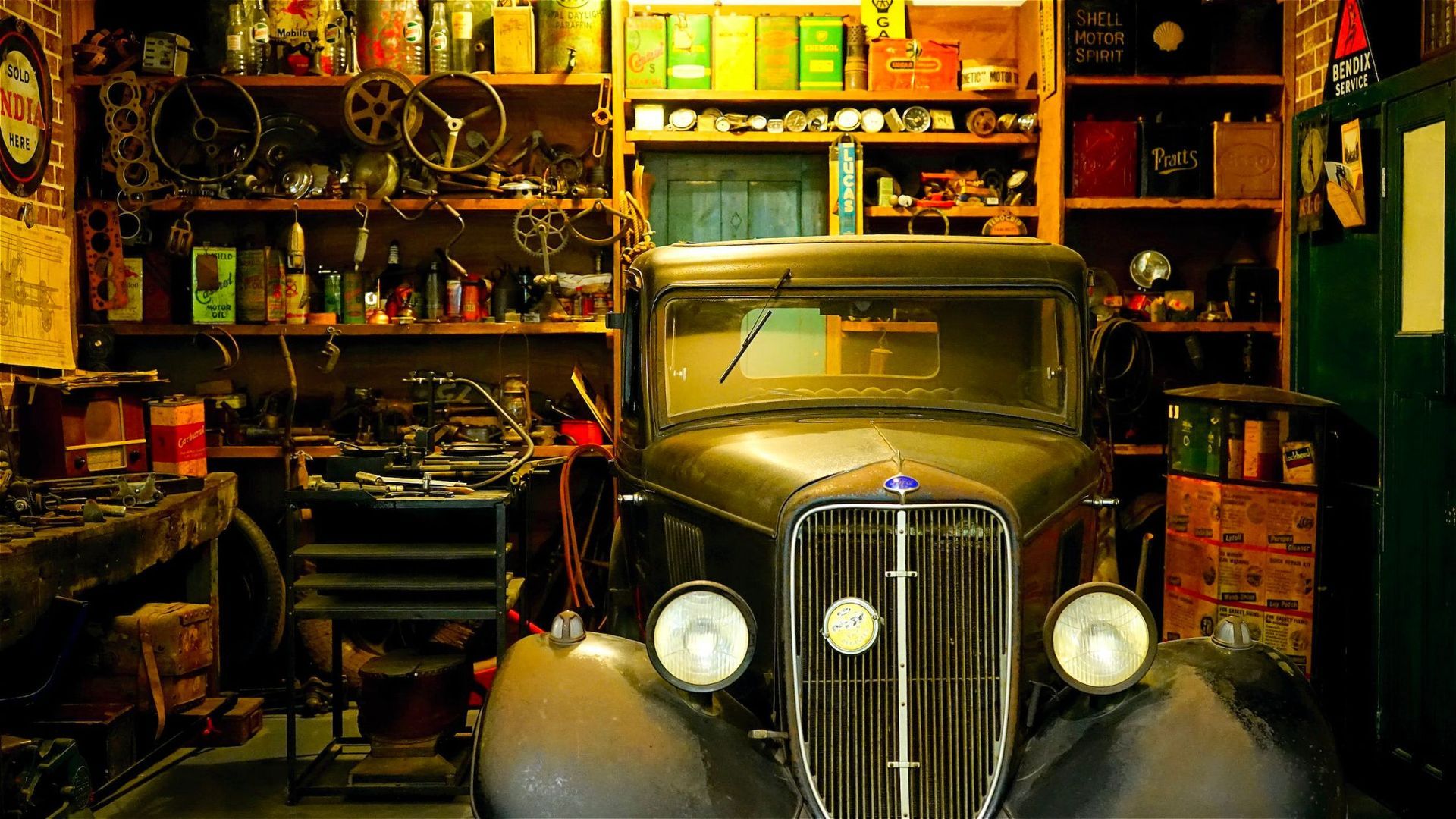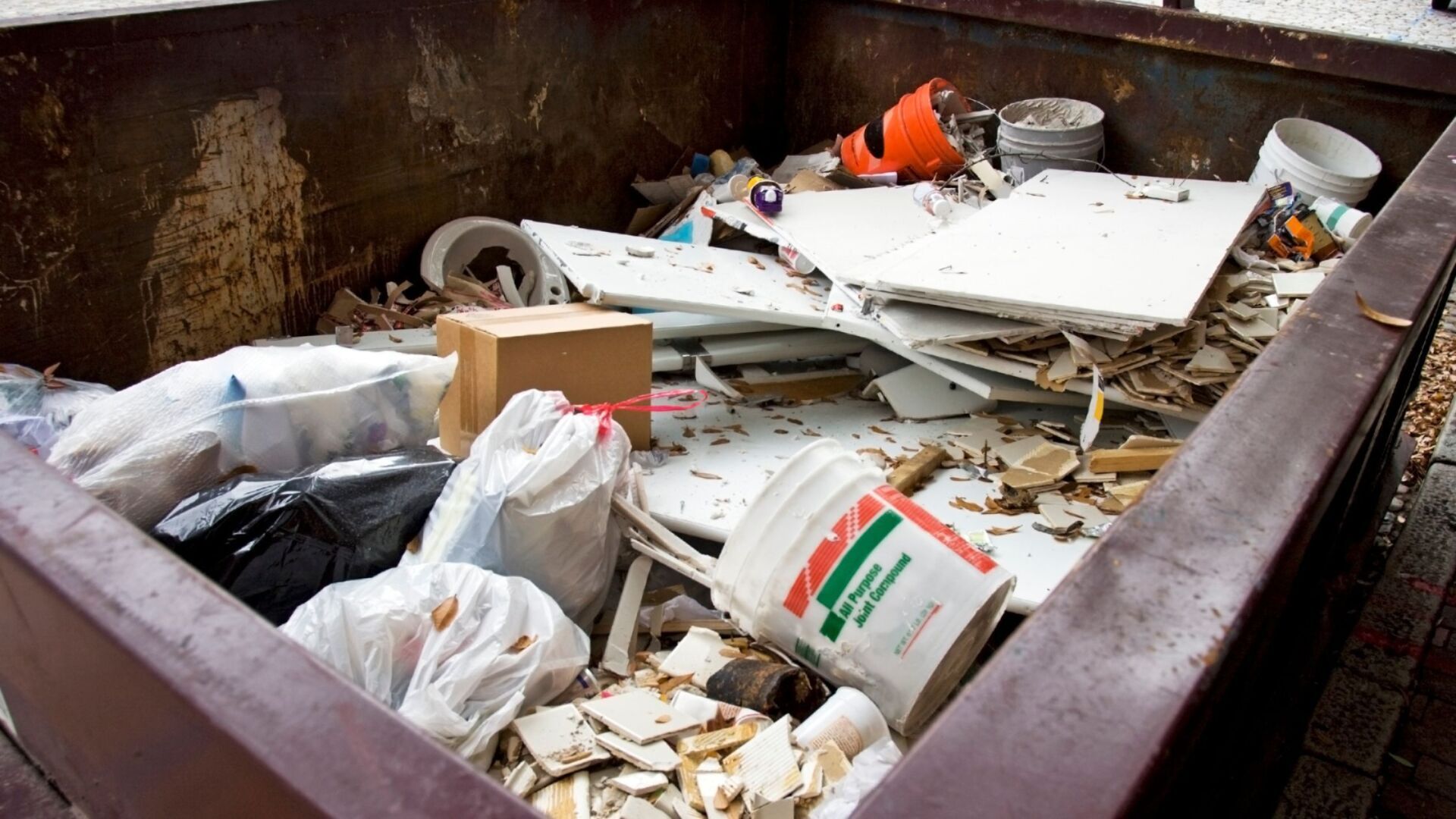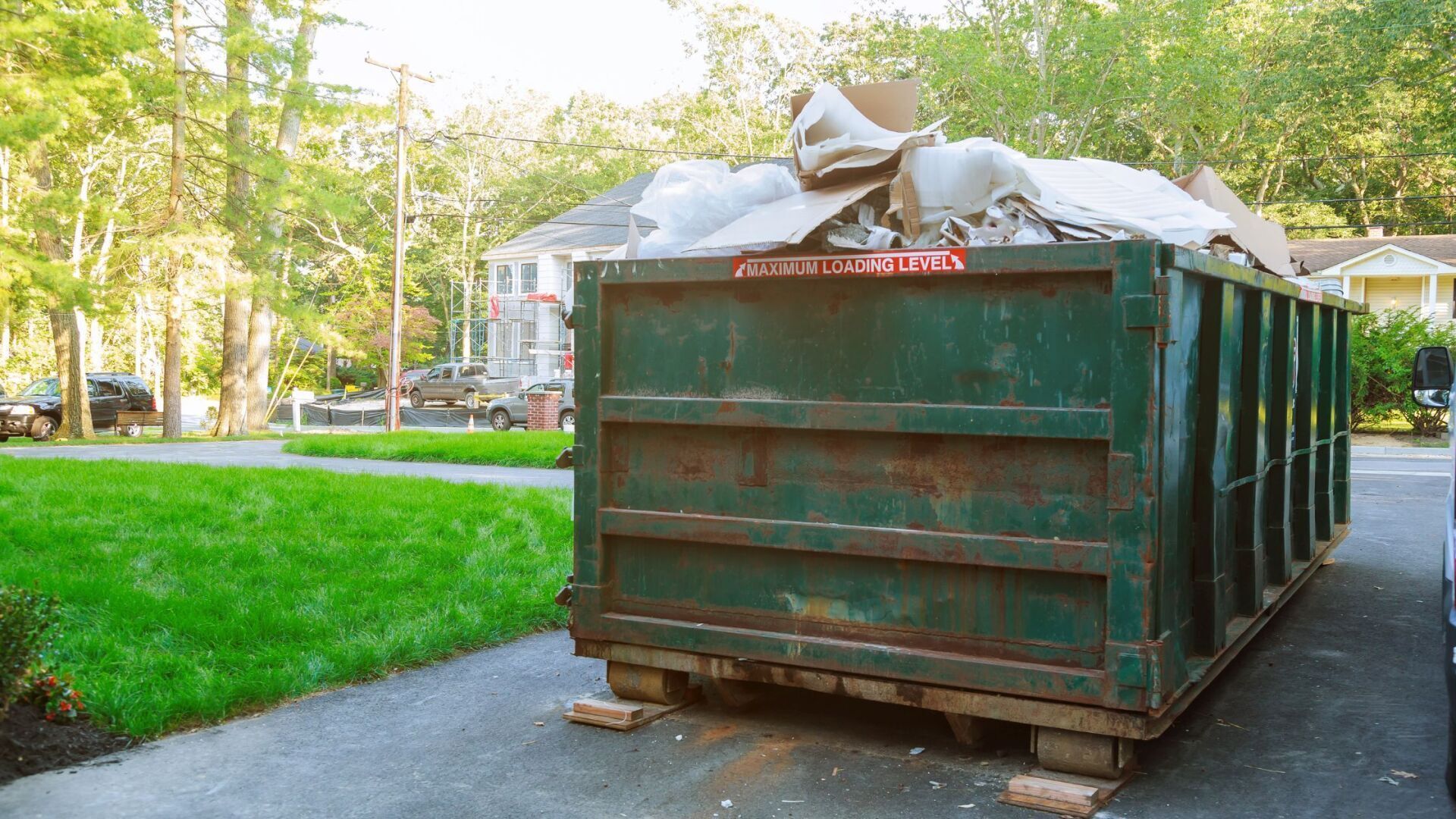Top 10 Items You Should Never Put in a Dumpster
Did you know improper waste disposal is responsible for almost 60% of pollution in our cities?
It’s a sobering thought, but illegal dumping and careless waste management are serious issues affecting the environment and our health and well-being.
We all share this planet, and understanding the dos and don'ts of dumpster usage is more important than you might think. When we dispose of waste correctly, we’re not just preventing soil and water contamination; we’re also protecting our sanitation workers and our neighborhoods from hazardous materials that can pose real risks.
In this post, we’ll dive into the top 10 things you should never throw in a dumpster and the reasons behind it. Plus, we'll share some safe disposal alternatives to encourage more responsible waste management. Together, we can keep our environment clean and make our communities safer and healthier for everyone.
Share
Looking for Dumpster Rental Services in the Fox Cities Area in Wisconsin? Consider Quality Waste Disposal. We're locally owned!
Hazardous Materials
1. Chemicals and Paints
Chemicals and paints are categorized as hazardous waste due to their toxic and often flammable nature. These substances contain harmful components such as lead, mercury, and volatile organic compounds (VOCs) that can pollute the air, water, and soil.
When improperly disposed of, chemicals and paints can leak into the ground, contaminating natural resources and posing serious health risks to humans and wildlife. Inhaling or coming into contact with these substances can lead to respiratory issues, skin irritation, and even long-term health problems.
Chemicals and Paints: Safe Disposal Alternatives
To dispose of chemicals and paints safely, look for local hazardous waste disposal programs in your area. Many communities have designated drop-off sites or specific collection days for hazardous materials. Be sure to follow the guidelines set by these programs, which often include specific instructions on how to package and label hazardous waste.
2. Batteries
Batteries contain hazardous materials such as cadmium, lead, and mercury, which are highly toxic and can contaminate both soil and water. When batteries are disposed of in dumpsters, they can deteriorate and release these harmful substances into the environment, leading to pollution and posing risks to public health and ecosystems.
Exposure to battery chemicals can cause serious health issues, including neurological damage and various types of organ failure.
Batteries: Safe Disposal Alternatives
Recycling is the best method for disposing of batteries. Many retailers and local governments offer dedicated battery recycling programs and drop-off centers. You can often find battery recycling bins at stores that sell batteries, as well as at special recycling facilities.
Check online resources or contact your local waste management authority to find the nearest battery disposal center and ensure that you are following the correct procedures for recycling different types of batteries.
Electronic Waste (E-Waste)
3. Electronics (TVs, Computers, Phones)
Electronic waste (e-waste) includes discarded electronic devices such as televisions, computers, and phones. These items often contain harmful substances like lead, mercury, cadmium, and brominated flame retardants.
When improperly disposed of, these toxic materials can leach into the environment, contaminating soil and water, and posing health risks such as kidney damage, liver damage, and other neurological and developmental problems in humans.
Electronics: Safe Disposal Alternatives
The best way to dispose of e-waste is through recycling programs. Many communities have dedicated e-waste recycling facilities where you can safely drop off your old electronics. Additionally, many electronics manufacturers and retailers offer take-back programs where they will accept and properly recycle old devices.
Ensure you wipe any personal data from your electronics before recycling them.
4. Large Appliances
Large appliances, such as refrigerators, air conditioners, and washers, contain a variety of hazardous materials, including refrigerants, oils, and other chemicals that can be harmful to the environment and human health if not disposed of correctly.
These substances can contribute to ozone layer depletion and greenhouse gas emissions, and can cause severe health issues, including respiratory problems and skin irritation.
Large Appliances: Safe Disposal Alternatives
Many local waste management services offer bulk item pickup services for large appliances. Additionally, there are specialized appliance recycling programs that ensure the safe handling and recycling of these items.
These programs often involve technicians who are trained to safely remove and recycle refrigerants and other hazardous materials. Check with your local waste management authority or recycling center for guidelines on how to prepare your appliances for disposal and to find the nearest recycling facility.
Construction and Demolition Debris
5. Asbestos Materials
Asbestos was commonly used in construction materials for its durability and resistance to heat. However, asbestos fibers pose significant health risks when inhaled, including lung cancer, mesothelioma, and asbestosis.
Even low-level exposure to asbestos can be dangerous over time, making the safe removal and disposal of asbestos-containing materials crucial during construction and demolition projects.
Asbestos Materials: Safe Disposal Alternatives
Disposing of asbestos should always be handled by specialized asbestos disposal services. These services are trained to safely remove and dispose of asbestos in compliance with local and national regulations.
Do not attempt to remove asbestos materials yourself; contact a certified professional to ensure that the job is done safely and legally.
6. Treated Wood
Treated wood, often used in decks, fences, and infrastructure, contains chemicals like chromated copper arsenate (CCA), creosote, or pentachlorophenol to protect it from pests and decay.
These chemicals, though effective in preserving wood, can leach into the soil and water, causing environmental damage and posing risks to human health, including cancer and skin irritation.
Treated Wood: Safe Disposal Alternatives
When disposing of treated wood, it’s important to avoid burning it, as this can release toxic chemicals into the air. Instead, take treated wood to a facility equipped to handle hazardous waste.
Some recycling centers accept treated wood and will ensure it’s processed safely. Check with your local waste management authority for the best disposal practices and find out if there are any specialized facilities in your area.
Automotive Products
7. Tires
Issues with Dumping Tires
Dumping tires is problematic for several reasons. Abandoned tires can accumulate rainwater, creating breeding grounds for pests like mosquitoes, which can spread diseases such as West Nile Virus and Zika.
Additionally, tire piles pose significant fire hazards; tire fires are notoriously difficult to extinguish and can release toxic smoke and pollutants into the air.
Tires: Safe Disposal Alternatives
To dispose of tires safely, utilize tire recycling programs. Many tire retailers and automotive shops accept old tires for recycling, often for a small fee.
Check with local waste management services or recycling centers to find tire collection events or facilities. Recycled tires can be used in products like rubberized asphalt, playground surfaces, and athletic tracks.
8. Motor Oil
Why Motor Oil is a Pollutant
Motor oil should never be dumped because it contains toxic substances that can contaminate water and soil. Just one gallon of used motor oil can pollute a million gallons of freshwater. Contaminated water poses significant hazards to aquatic life, ecosystems, and even human health.
Motor Oil: Safe Disposal Alternatives
Used motor oil can be taken to many service stations, auto parts stores, and recycling centers that offer oil recycling services. Some locations even provide oil filter recycling. Keep the used oil in a clean, leak-proof container and transport it to the nearest facility offering motor oil recycling.
Biological and Medical Waste
9. Medical Waste (Syringes, Pharmaceuticals)
Dangers of Disposing of Medical Waste Improperly
Improper disposal of medical waste, such as syringes and pharmaceuticals, poses considerable risks. Disposing of these items in dumpsters can lead to injury or infection for sanitation workers exposed to needlesticks.
Additionally, pharmaceuticals can leach into waterways, affecting aquatic life, and potentially leading to the development of drug-resistant bacteria.
Medical Waste: Safe Disposal Alternatives
To dispose of medical waste safely, use take-back programs or approved disposal methods. Many pharmacies and healthcare providers offer take-back services for unused medications.
For sharps, use dedicated sharps disposal containers and drop them off at approved collection sites, which may include hospitals, clinics, or designated disposal programs. Check your local health department for more information on disposal options.
10. Biological Waste
Health Risks Associated with Biological Waste
Biological waste, including bodily fluids, human tissue, and other potentially infectious materials, poses severe health risks. Exposure to biological waste can result in the transmission of infectious diseases, including hepatitis, HIV, and other bloodborne pathogens.
Biological Waste: Safe Disposal Alternatives
Specialized medical waste disposal services are essential for handling biological waste. These services are equipped to safely collect, transport, and dispose of biological materials in compliance with health and safety regulations.
Healthcare facilities should contract with certified medical waste disposal companies to ensure proper treatment and disposal.
Recap: Responsible Disposal of Hazardous Items in the Fox Valley
At Quality Waste Disposal Inc., we understand the importance of properly disposing of hazardous items to protect our environment and community. This includes common items like:
- Televisions, computers, and phones
- Large appliances
- Asbestos materials
- Treated wood
- Tires and motor oil
- Syringes, pharmaceuticals, and biological waste
Proper disposal is essential to prevent environmental pollution and safeguard public health.
How You Can Help
Educate Yourself
Familiarize yourself with local waste disposal regulations in Neenah and the greater Fox Valley. Understand the safe disposal alternatives for each type of hazardous waste.
Take Action
Make use of the disposal services we offer at Quality Waste Disposal for items such as large appliances and tires. Whether you're a homeowner or contractor, we provide convenient dumpster rental services to meet your needs.
Spread the Word
Encourage friends, family, and neighbors to follow proper disposal practices. By working together, we can ensure hazardous waste is managed responsibly.
Our Commitment
We all share the responsibility of protecting our environment. By making informed choices about disposal and recycling, we can minimize harmful impacts and contribute to a healthier, safer world for everyone.
Thank you for choosing Quality Waste Disposal and doing your part to safeguard our community.

